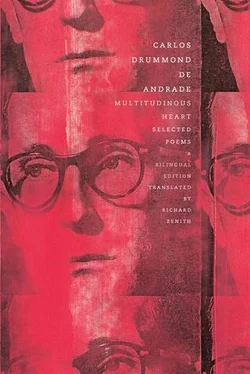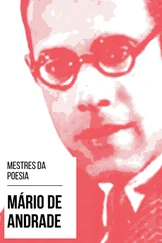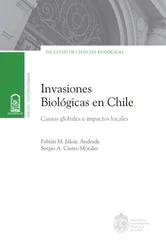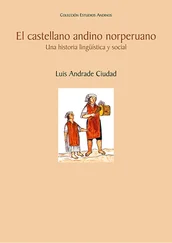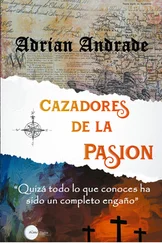and a country boy nostalgic
for the scholar. And so
he’s become the patriarch.
Further down we have
the inheritor of your iron
will, your stoic temperament.
But he didn’t want to repeat you.
He thought it pointless
to reproduce on earth
what the earth will swallow.
He loved. And loves. And will love.
But he didn’t want his love
to be a prison for two,
a contract between yawns
and four slippered feet.
Brutal on first contact,
cool on a second meeting,
and affable on the third,
it seems he’s afraid
of being, fatally, human.
It seems he feels rage
but that honey transcends his rage,
and what clever, crafty ways
he has to fool himself
about himself: he wields
a force he’s unable
to call just kindness.
Look who’s sitting there.
She quit talking, not wanting
to feed with new words
the discourse always humming
among those of us less guarded.
She quit talking. Don’t take it
badly. If you loved her
so much, then something in her
still loves you, in that twisted
way of ours. (Not being
happy explains everything.)
I realize how painful
these family occasions are,
and to argue now
would kill the party, killing
you — no one dies
just once, nor once and for all.
Lots of lives will always
remain to be consumed,
owing to the clashes
of our blood in the different
bodies where it’s dispersed.
Lots of deaths are always
waiting to be slowly rein-
carnated in another dead soul.
But we’re all alive.
And not just alive: we’re happy.
We’re just like we were
before being us, and no one
will say that any of your children
were missing. There, for instance,
sitting at the corner of the table,
not with humility and perhaps
because he’s the king of conceit,
fond of his role
as the awkward misfit—
that’s me you’re seeing. What
do you think? Don’t worry: I work.
What used to be the good life
has become just life
(and it wasn’t all that good,
nor did it turn out that bad).
Yes, that he is me.
Take note: I’ve every flaw
I couldn’t find in you
and none of the flaws (much less
the virtues) that were yours.
No matter: I’m your son
in my negative way
of affirming you.
We fought, my God, how
we fought! Serious stuff,
but only love knows how
to walk the paths of love.
Any pleasure I gave you
was feeble … perhaps no more
than the hope of pleasure.
Yes, perhaps I gave you
the neutral satisfaction
of feeling that your son
was even too inept
to become a nasty person.
I’m not a nasty person.
If you had doubts, rest easy,
that’s not my nature.
A few affections thread
my jaded heart. Do I
get jaded? Exceedingly.
That’s my weak point, a fault
I didn’t get from you.
Enough of me, there are still
eight more of us for you
to see — all puny, all
cut short. What sorry
flora we found to adorn
the table! But it’s not true.
So remote, so pure,
so forgotten in the ground
that swallows and transforms,
they’re angels — bright angels
emitting rays of love,
and amid the blur of crystal
their crystal also rings,
reverberating its own
shadow. They’re angels who deigned
to grace our banquet, to sit here
on stools. They’re angels. And you
had no idea that when
a mortal loses a child,
he’s giving back to God
something of his airy,
sensitive, divine substance.
Count us: fourteen at the table.
Or thirty? Maybe fifty
if still more kin arrive
from our daily multiplied
flesh that couples and crosses
with other loving flesh.
There are fifty sinners,
if sin is having been born
and knowing the taste of sins
handed down to us.
The train of grandchildren
followed by great-grandchildren
has come to ask your blessing
and take part in your dinner.
Look at this child here,
at her chin, her eyes, her expression,
at her solemn self-awareness
and her girlish grace,
and tell me if she isn’t,
in the midst of all my errors,
an unexpected truth.
She’s my explanation,
my best or only verse,
my all that fills my nothing.
Now the crowded table
is larger than the house.
We talk with our mouths full,
we lay into each other,
we laugh until we cry,
we forget about the harsh
inhibitor called respect,
and all our happiness,
so often withered in somber
commemorative feasts
(now’s not the time to remember),
all the would-be gestures
of brotherly feeling, abandoned
(now’s not the time to remember),
and the soft-and-tender words
that would have changed our lives
had they been spoken back then
(now’s not the time for change),
it all spreads around the table,
like a new kind of food.
Oh what a heavenly supper
and what down-to-earth pleasure!
Who made it? What undeniable
vocation of self-sacrifice
set the table, had the children?
Who hardly lived? Who paid
for all of this with tireless labor?
Whose invisible hand
traced this flowery flourish
around the pudding as if
tracing a halo? Who has
a halo? Who doesn’t have one,
since right away she thinks
of sharing her halo’s gold,
and what she thinks, she does?
Who’s sitting to your left
with head bowed? Whose white
— so white it’s whiter-than-white—
head of white hair
bleeds the color from the oranges,
bleaches the coffee, and annuls
the shimmer of the seraphim?
Who’s all light and sheer white?
Surely you never imagined
how a shade of white could be
so different from whiteness
itself … An absolute white
created in your absence,
but here it is, and it’s perfect,
concrete, and cold as the moon.
How can our party be just
for one of you, not for both?
Now you’re reunited,
the two of you bound tighter
than earthly vows can bind.
You’re together at this table
whose wood is truer and harder
than any law of the nation.
And you’re above us,
above this dinner to which
we summoned you because
we love you after all
and, loving, fool ourselves
next to this empty
table.
Cada dia que passa incorporo mais esta verdade, de que eles não vivem senão em nós
e por isso vivem tão pouco; tão intervalado; tão débil.
Fora de nós é que talvez deixaram de viver, para o que se chama tempo.
E essa eternidade negativa não nos desola.
Pouco e mal que eles vivam, dentro de nós, é vida não obstante.
E já não enfrentamos a morte, de sempre trazê-la conosco.
Mas, como estão longe, ao mesmo tempo que nossos atuais habitantes
e nossos hóspedes e nossos tecidos e a circulação nossa!
A mais tênue forma exterior nos atinge.
O próximo existe. O pássaro existe.
E eles também existem, mas que oblíquos! e mesmo sorrindo, que disfarçados …
Há que renunciar a toda procura.
Não os encontraríamos, ao encontrá-los.
Ter e não ter em nós um vaso sagrado,
um depósito, uma presença contínua,
esta é nossa condição, enquanto,
sem condição, transitamos
e julgamos amar
Читать дальше
